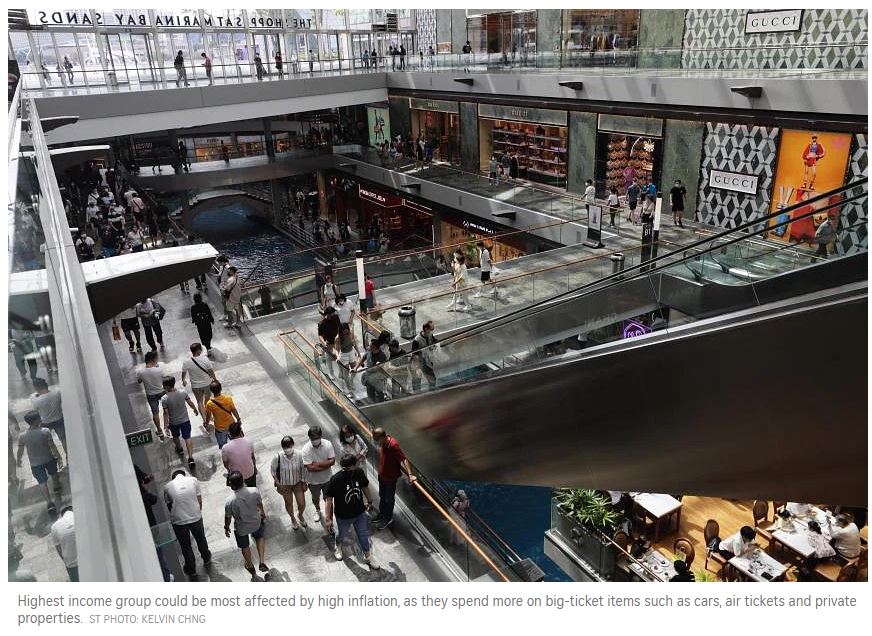Singapore: Higher-income earners hit by expensive items; worst of inflation may be over: Analysts
SINGAPORE – Real income growth remains muted, but sky-high inflation may have peaked, experts say.
They were speaking to The Straits Times on 2022 household income figures released by the Singapore Department of Statistics (SingStat) on Thursday.
Median monthly household income from work rose 0.2 per cent in real terms, or after adjusting for inflation, in 2022. This is lower than the 1.5 per cent increase registered in 2021. After adjusting for inflation, households in the first nine deciles saw real income growth. Only the top decile saw a drop in real income.
Asked why this is so, analysts said the highest income group could be most affected by high inflation, as they spend more on big-ticket items such as cars, air tickets and private properties.
Professor Lawrence Loh, director of the National University of Singapore Business School’s Centre for Governance and Sustainability, said top income earners are usually professionals whose incomes are subject to variations due to the economic situation, which has not been favourable in recent years.
“It is normally more difficult to sustain the high bases in income as one goes up the earnings ladder,” he added.
Experts said cost of living remains a concern, especially for middle-income households.
The fall in income inequality, they added, showed that Government measures to uplift the lower-wage workers through the Progressive Wage Model and Workfare Income Supplement scheme have been effective. Income inequality is also moderated by government transfers.
Government job and wage support schemes during the pandemic allowed lower income earners to maintain their pay or even keep their jobs, said Prof Loh.
After adjusting for government transfers and taxes, the Gini coefficient in 2022 fell from 0.437 to 0.378. This compares favourably with some developing nations, which have a Gini coefficient of around 0.6, said NUS sociology professor Tan Ern Ser.
But a look at wealth inequality may present a different picture, he added. Wealthier individuals may have income from sources other than employment, such as investments, property and inherited wealth, which are not accounted for in SingStat data.
CIMB economist Song Seng Wun said the increase in real household incomes showed that the post-Covid-19 re-opening of the economy has created more opportunities, with the labour market tightening significantly.
To further narrow the income gap in the long run, higher wages and quality jobs would help the lowest earners.
He said that while inflation remains high, it may have peaked in 2022.
“Inflation becomes a concern only when it becomes entrenched, and expectations for inflation continue to rise and outstrip nominal wage growth,” he said.
“We do see this… where we have supply disruptions and various issues like the Ukraine war, but it looks like the worst of inflation may be behind us.”
OCBC Bank chief economist Selena Ling said: “Inflation may not ease significantly this year, at least not in the first half of the year, especially for core inflation, so both nominal and real wage income growth may remain muted.
“For households, especially middle income ones, they will likely still feel the pain from being squeezed by higher prices for most goods and services, as well as higher debt servicing burdens due to rising interest rates.”
She added that nominal wage growth may not keep pace with inflation in 2023, with headline and core inflation likely to come in at around 6 per cent and 4 per cent, respectively.
But, she observed, unemployment rates are very low and employment gains jumped in 2022.
Source: https://www.straitstimes.com/singapore/higher-income-earners-hit-by-expensive-items-worst-of-inflation-may-be-over-analysts


 Thailand
Thailand




